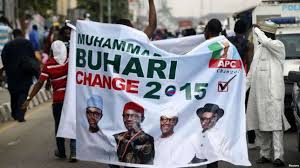With all the hype about the social media and its role in stimulating political change in the Arab world, scholars and journalists from around the world who gathered in Dublin at a conference on Media and Arab Spring agreed that there was more to the uprising than just social media.
An array of speakers established that while the social media helped to mobilize citizens and created awareness, it did not cause the revolution because several other factors were lined to up against the dictatorships in the region.
Outspoken academic and social critic, Dr. Mervat Madkour of Cairo University remarked that for too long there had been a deficit of trust within the Egyptian population: between the elite and ordinary citizens as well as among the elite class.
In a paper entitled “The Paradox of Representation and the Use of New Media in the Arab Spring”, Dr. Madkour spoke of what she termed “invasion of Egyptian minds” by the West and other societies in the Gulf region resulting in poor communication among the citizenry.
“Who are the representatives of Egypt in the digital society”?, the professor of political economy asked as she sought to explore the demographics of the revolution which in her view remained unclear to this day.
She criticized a number of nongovernmental organizations in Egypt that have not done enough in forging a strong civil society that will uphold the pride and nationalism of Egypt. Instead, most of the organizations have colluded with enemies of the people in dwarfing the cause of change in the region.
Also speaking at the conference, the President of the Center for Media & Peace Initiatives, New York, Dr. Uchenna Ekwo maintained that the convergence of media platforms notably between the old and new media facilitated the revolution in the Arab world.
Dr. Ekwo cautioned against oversimplification of the role of the social media, pointing out that the influence of the media is better appreciated where there is synergy between online and offline activitism. “It will be an illusion for anyone to assume that social media alone can bring about change”, he said.
In his paper: “Media-political Complex in the era of Media Convergence: Lessons from the Arab Spring”, Dr. Ekwo called for an end to the manipulation of the citizens by both the media and politicians in the region, adding that the traditional media must embark on serious reforms to coincide with the changing political landscape.
Another presentation “The Egyptian Revolution Goes Viral: Reading Categories of Tweets in the Tweeter-created Networked Public Sphere” by Dr. Jongwoo Han and Alexander Fay, both from Syracuse University discussed the shifting communication patterns within the Arab public sphere.
The study, a content analysis of the volume of tweets within the revolution, revealed that vertical communication in the region was being replaced by horizontal communication thereby empowering citizens to challenge official narratives.
Professors Stuart Allan and Caitlin Patrick of Bournemouth University, United Kingdom in their paper: “Shut Up You Dog”: Online Reporting of Gaddafi’s Capture and Death” presented a quandary for journalists as they navigate the ethical compass of reporting sensitive stories especially in war situations.
The media coverage of Gaddafi’s death especially the display of his bloody face was grotesque, gruesome, and offensive to some people who believed that regardless of the circumstances, the dead should be treated with some respect.
In their study, a British newspaper in its headline exhibited a tone of vengeance: “…for Lockerbie” to remind readers that his death was payback time for Gaddafi’s suspected role in the 1988 killing of passengers aboard a Panam airline over Lockerbie, Scotland.
In his presentation, Dr. Joseph Massad, an Associate Professor of Modern Arab Politics and Intellectual History at Columbia University discussed the love and fear factor in leadership within the Arab society.
He concluded that oppression of the vast population in the region by its leadership supported by the West and Saudi Arabia would continue even after the dust raised by the so called Arab Spring settles.
Dr. Massad’s pessimism of the future of the Arab region especially the sustenance of the change that started last year is based on three factors. So far as Israel’s military might, Saudi Arabia’s financial power, and Egypt’s cultural and historical significance in the region remains unchallenged, there is hardly going to be any departure from the status quo, Massad stated.
Organized by the Clinton Institute for American Studies, University College, Dublin, Ireland, the two-day conference examined the different ramifications of media’s coverage of the Arab Spring that saw the removal of dictators in Tunisia, Egypt, Libya, Yemen, and upheavals in Syria and other Arab countries. Participants were drawn from the academia, journalism, civil society across different countries around the world.




